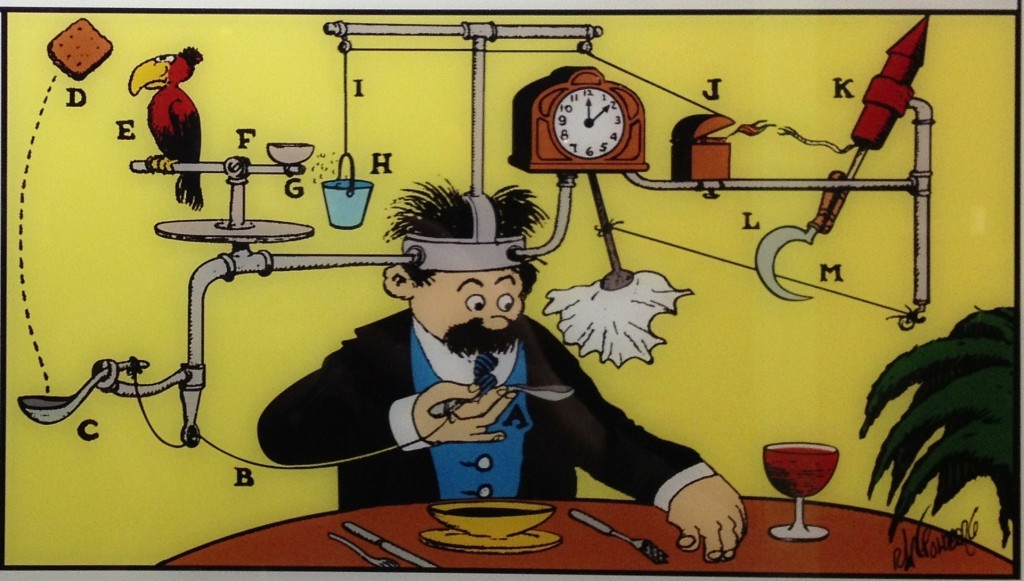Yesterday, I introduced my new project here, along with my new beat — being ourselves in the post-social world — and I talked about what I mean by that “post-social†thing.
Today, I’m going to talk about the “being ourselves†part.
I know it sounds a little…squishy. Identity is a gigantic topic — at one end, you’ve got big questions like “Who am I?â€; and at the other, you’ve got the everyday nuisance of authenticating yourself to your bank or your email provider.
I started paying attention to this subject a few years ago during my research on the history of blogs. I noticed that there was a contradiction at the root of blogging ideology — one that has only intensified in the social media age. On the one hand, digital platforms for the self, from blogs to Facebook, promise a direct shortcut to each user’s authentic being. Accept no imitations — here’s the Real Me! On the other, these same tools offer us boundless opportunities to experiment with alternative identities, to try on different “meâ€s for size and reinvent ourselves. As Marshall McLuhan used to say: “Don’t like those ideas? I got others.â€
It seems obvious to me that both of these conceptions of How to Be Yourself are legitimate and valuable — and that technology has made both of them more available and more tantalizing, making it easier for each of us to find direct unmediated connections with others and also to play with alternative identities and self-reinvention.
Yet, mostly, the public debate on digital identity is stuck in a polarized argument. Advocates of transparency and single identity maintain that a one-person, one-name, one-identity world creates trust and holds us accountable to one another. Believers in anonymity and multiple identities argue that masks and veils can free our voices, liberate us to be playful and vulnerable, and let us speak truth to power.
Both camps urge us to “be ourselves.†But they arrive at opposite conclusions.
Any useful analysis of the nature of identity online needs to acknowledge that neither of these modes is natural or somehow baked into the technology independent of how we use it. Our digital platforms don’t include any inherent bias toward either end of this spectrum; if they push us in one direction or the other, it’s because someone built them that way — and someone else found that useful or attractive.
In other words: The Internet didn’t make me do it! The Internet doesn’t make anyone do anything. We made the Internet ourselves, and we remake it with every click and post and line of code.
Of course different technologies have different characteristics, and those traits fascinatingly affect our experience of those technologies. But they’re not innate, immutable, or inevitable; they’re there because we put them there, and they evolved through an intimate back-and-forth between the technology and the people who make and use it. We need to resist the most common fallacy we fall into in trying to understand communications technology — the assumption that the medium itself has some native will or force that imposes itself on us. This way of thinking turns us into passive receptors of technological imperatives; it denies us our freedom to act.
All “medium is the message” arguments aside, talking about technology’s “impacts†and “effects†is, as Claude Fischer wrote (in his magisterial history of the adoption of the telephone), the “wrong language, a mechanical language that implies that human actions are impelled by external forces when they are really the outcomes of actors making purposeful choices under constraints.â€
“Actors making purposeful choices under constraints†— that’s you and me, out here on the net, putting on shows for one another, looking for truth and trying to be ourselves in a rich, perilous, disorienting landscape that has become our home. (For those of you who know that I spent the first, pre-Internet part of my career as a theater critic: Yes, these dots do connect.)
That’s what I’m gonna be writing about a lot here. More tomorrow about exactly what and how.
If this stuff intrigues you, here is a five-minute Ignite talk I gave at NewsFoo 2012 about it:
Post Revisions:
- May 29, 2014 @ 07:18:28 [Current Revision] by Scott Rosenberg
- May 29, 2014 @ 07:18:28 by Scott Rosenberg
- May 28, 2014 @ 06:04:36 by Scott Rosenberg

